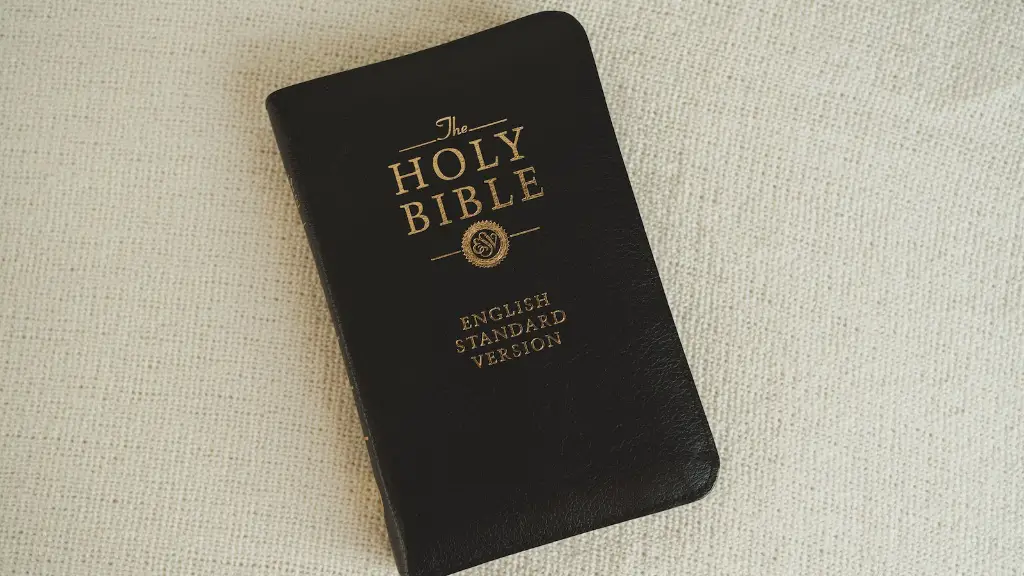Jonah is a prophet and character in the Bible heavily associated with the theme of repentance and mercy. Jonah is mentioned in the Old Testament biblical books of Jonah, 2 Kings, 1 Chronicles and Amos. Most of the story of Jonah centers around his divine mission to preach repentance and redemption to the people of Nineveh in Assyria, a neighbouring kingdom to that of Israel.
The Book of Jonah is dedicated to Jonah’s immediate interaction with God, who orders him to preach to the people of Nineveh. In 1:2 of the book, The Lord commands him to “Arise, go to Nineveh, that great city and cry against it For their wickedness is come up before me”. The story goes on to narrate the woes and eventual deliverance which Jonah experiences in his mission and his ultimate repentance. At the climax of the story, the Assyrian people of Nineveh, who had disobeyed God’s command, repent and receive the mercy of God.
The significant events of the Book of Jonah, including the enormous fish, are considered to be symbolic by most modern scholars, as the book’s seeming inconsistencies and exaggeration do not fit with most historians’ version of the timeline. Nevertheless, the story of Jonah has been long seen as a powerful lesson on the mercy and repentance made available to the disobedient, through accepting God’s grace.
Apart from the Book of Jonah, other Bible stories provide more insight into the life of Jonah. In the 2nd book of Kings, chapter 14, we can find an episode in which Jonah preaches against the leader of Samaria. In 1 Chronicles 5: 24-25, a genealogy of the region of Gilead includes Joean as one of its forefathers. The book of Amos mentions a prophecy given by Jonah to Jeroboam, king of Israel. This prophet shared a message of judgement and conviction, yet one that also held hope for eventual restoration for the nation.
In addition to the message of the Book of Jonah, the prophet is also known for his bitterness, which could be perceived in his prayer to the Lord in chapter 4. This prayer details a sense of grievance, as Jonah is essentially lamenting the downfall of Nineveh. The lesson of Jonah is universally accepted as one of hope and Restoration, which also speaks to the redemption of those who have not yet obtained God’s grace.
A Symbol Of Repentence And Mercy
Jonah is often remembered as a symbol of repentance and mercy. In the time of Jonah, the Assyrians and other nations had strayed from the worship of God and had judged the Israelites harshly. Even though Jonah knew that the pagan nations would come to know their sin, he still refused to preach repentance to them, so as not to void the Lord’s judgement. For this, Jonah was punished and eventually repented of his pride and disobedience and accepted God’s mercy and grace.
The story of Jonah is an example of how God works in mysterious ways, bringing about forgiveness and redemption for wickedness, even in the face of overwhelming odds. Despite Jonah’s discomfort and reluctance to face God’s judgement, he eventually accepts it and experiences the abundant mercy of God.
Additionally, through the story of Jonah, we can understand the importance of grace and redemption, as well as humility and obedience in the life of a believer. In spite of our mistakes and failures, God continues to call us to his side and offer us his gift of mercy, even when we are seemingly beyond redemption.
Other Lessons From The Story Of Jonah
In addition to the message of repentance, the story of Jonah teaches many other lessons, which can be applied to our own lives. The importance of accepting our faults and inadequacies, while still placing our faith in the Lord is a central theme in the Book of Jonah. Jonah was brought low, yet he still chose to serve the Lord, even when the task seemed difficult. The Book of Jonah demonstrates that no one is without hope in the eyes of the Lord.
Moreover, the Book of Jonah speaks to the power of prayer. Throughout his journey, Jonah not only speaks to the Lord but prays to him in moments of trouble and despair. Prayer is seen as both a spiritual refuge and a tool of comfort, as God’s ear is always open to our cries. The Lord is always eager to listen, to offer advice, and to provide for our needs.
The complex nature of the Book of Jonah reveals a story of redemption and hope, one that is both challenging and full of understanding. By watching the life of Jonah, we can learn to accept our failings and seek the Lord’s mercy. This same mercy is extended to each and every one of us, and in seeking it, we can find peace and assurance in our lives.
Approaches To The Story Of Jonah By Bible Scholars
The story of Jonah and its various interpretations has been subject to intense debate for centuries. Biblical scholars have discussed the difference between fact and symbolism in the narrative, as well as its historical anchoring as compared to other stories from the Bible. Though some do view the Book of Jonah to be historically accurate, others have argued that it contains items which are inconsistent with known history and must therefore be seen as allegorical.
Additionally, Bible scholars have attempted to examine the nature of repentance in the story of Jonah and its implications for our present day. For example, some have noted that Jonah’s refusal to carry out God’s commands was potentially motivated by pride and self-interest – something which is all too common among us today. Many interpretations have also emphasised the importance of humility and acceptance in repentance, as God prefers a humble and contrite heart, rather than one motivated by self-preservation.
Moreover, the narrative of Jonah has been investigated in terms of the inconsistencies between what is written in the Bible and historical accounts from other cultures. These inconsistencies have provoked discussion as to whether the biblical narrative should be accepted at face value, or whether it should be seen as an allegory for an early encounter between Israel and an Assyrian kingdom.
Jonah In Modern Culture
The story of Jonah has had a profound effect on modern culture in a range of ways. It has been the subject of numerous books and films, ranging from novellas to children’s stories, and given its relevance to themes of restoration and forgiveness, it often features heavily within Christian circles. The figure of Jonah has also been adopted by some artists and writers, and it has become a pop culture icon in certain fields.
Moreover, the story has been used as a cautionary tale on a range of topics, including pollution, animal rights and personal responsibility. Certain explanations of the text have pointed to the eternal suffering of Jonah in the belly of the fish, and this has been used to show the potential devastating consequences of neglecting one’s environmental duties.
Additionally, the story of Jonah has been used in various ways to convey a message of conversion and social responsibility. This ranges from messages of respect for the environment to reminders of the power of forgiveness and mercy, and how this should be extended to those who wish to repent.
Jonah In The Scriptures
In addition to the book of Jonah, the character Jonah is mentioned in a handful of other Bible stories, as well as in scriptural genealogies. In the book of 2 Kings 14, we learn that Jonah preached against the ruler of Samaria, and in 1 Chronicles 5: 24-25, a genealogy of the region of Gilead includes Joean as one of its forefathers. The prophet is also mentioned in Amos 7, where he appears in a prophecy warning the disobedient nation of Israel of its impending doom.
In these examples, like the Book of Jonah, the presence of Jonah is taken to represent an element of judgement and redemption. His boldness in preaching repentance as a representative of God is highlighted as a way of conveying the magnitude of God’s mercy, even in the face of stiff-necked disobedience.
At the same time, Jonah is also used to portray a sense of inner conflict. He is hesitant to carry out his divine mission, and his propensity to give in to his own fears is something that we can all identify with in our own lives. His story reminds us that despite our failings and discouragements, God is still working to restore our faith, while calling us to humility and obedience in the process.





